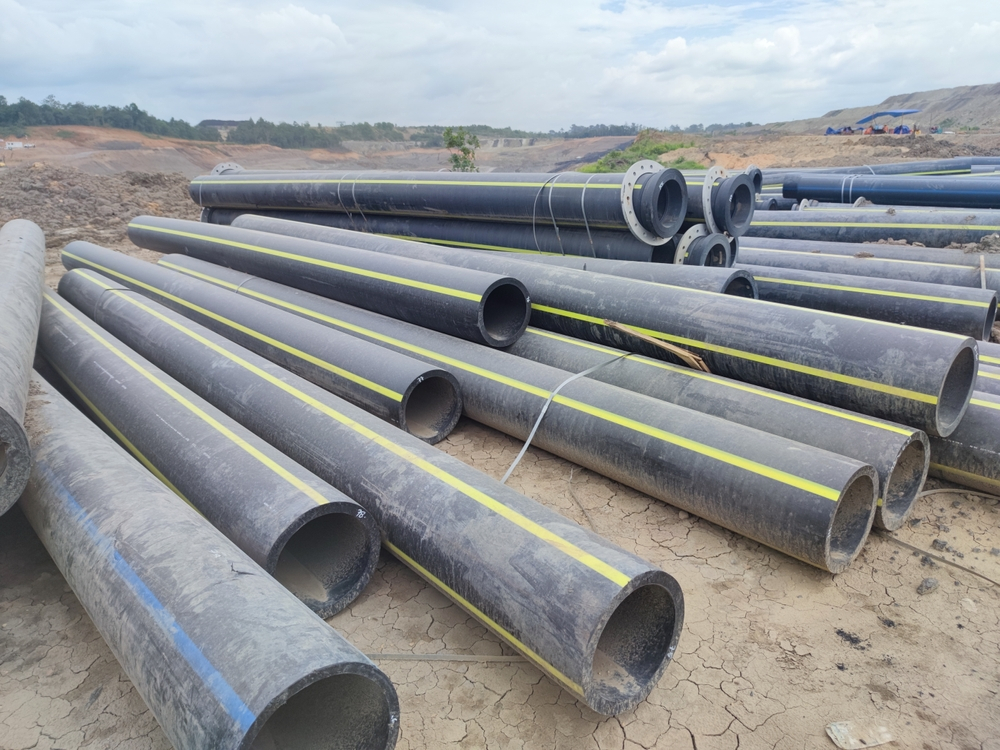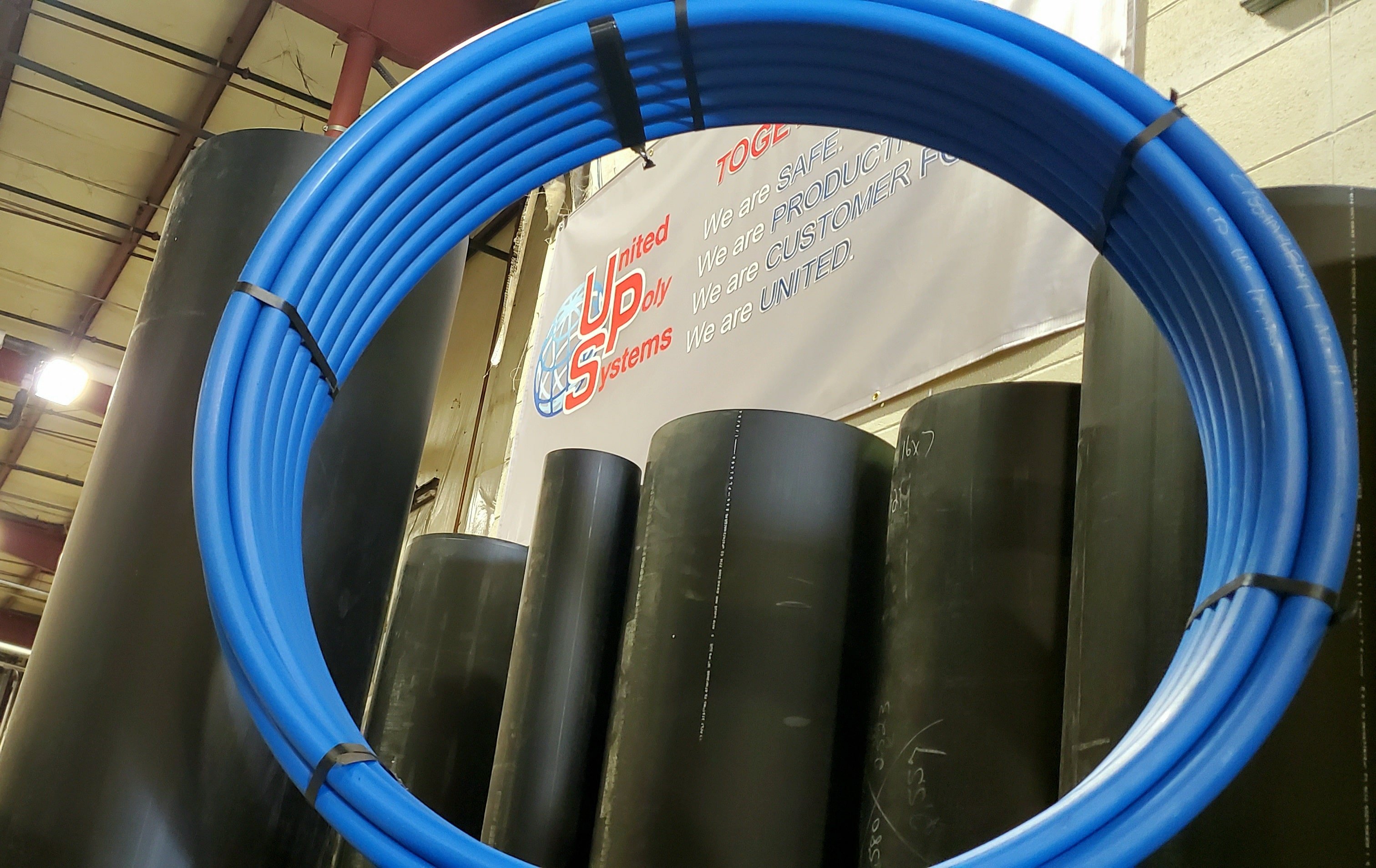Why Builders Prefer hdpe pipe in stock Midland TX for Reliable Supply
Wiki Article
Recognizing the Secret Perks of HDPE Pipeline for Water and Wastewater Management
The usage of HDPE pipe in water and wastewater management presents countless advantages that merit factor to consider. Its remarkable toughness and lengthy lifespan make it a preferred choice for many jobs. Additionally, the material's resistance to deterioration and chemical damages improves its dependability in different atmospheres. The benefits expand beyond simply longevity and resistance. Texas hdpe pipe manufacturer. Discovering its cost-effectiveness and ecological impact discloses also much more compelling reasons for its prevalent fostering in modern facilitiesOutstanding Resilience and Durability

HDPE pipe attracts attention for its outstanding resilience and long life, making it a favored selection in water monitoring systems. Built from high-density polyethylene, these pipes can hold up against significant pressure and stress, guaranteeing dependable performance in time. Their durable nature permits them to endure extreme ecological problems, consisting of temperature fluctuations and dirt activities, which can cause various other materials to fall short.
The lifespan of HDPE pipelines frequently exceeds half a century, supplying an affordable solution for towns and sectors alike. Additionally, the product's lightweight homes streamline installation, reducing labor prices and durations. This sturdiness decreases the need for regular repairs or substitutes, further enhancing its economic appeal.
In water administration applications, the dependability of HDPE pipelines indicates fewer interruptions and improved service connection, making them essential to sustainable framework advancement. The mix of longevity and durability solidifies HDPE's duty as a keystone in effective water monitoring solutions.

Resistance to Corrosion and Chemical Damage
While lots of products catch rust and chemical damages gradually, HDPE pipes exhibit exceptional resistance, making them optimal for different water monitoring applications. This resilience comes from the molecular structure of high-density polyethylene, which is naturally non-reactive and does not wear away like steels or weaken from direct exposure to rough chemicals. As a result, HDPE is extremely effective in atmospheres with hostile materials, such as wastewater systems that might include acids, bases, and natural solvents.
Additionally, HDPE pipelines can endure environmental factors such as dirt acidity and saline problems, further improving their suitability for varied applications (Midland TX HDPE Pipe Fittings in Stock). Their ability to maintain structural integrity gradually decreases the danger of leaks and failings, which is critical in guaranteeing the security and dependability of water circulation and wastewater management systems. The resistance to deterioration and chemical damages substantially contributes to the general performance and durability of HDPE piping services.
Cost-Effectiveness and Financial Advantages
When considering the financial implications of water management systems, the cost-effectiveness of HDPE pipelines becomes apparent. These pipelines offer reduced setup and maintenance prices contrasted to typical materials like steel or concrete. Their lightweight nature streamlines transportation and setup, leading to decreased labor costs. Additionally, HDPE pipelines show a lengthy life expectancy, often exceeding 50 years, which equates to less replacements and lasting financial savings.The resistance of HDPE to rust and chemical damages reduces the demand for costly fixings and replacements. The pipelines additionally sustain reliable water flow, lowering power expenses connected with pumping systems. By minimizing leaks and water loss, HDPE pipelines add to significant financial benefits for municipalities and markets alike. Overall, the first investment in HDPE piping can produce substantial financial returns over the life-span of the water monitoring system, making it a sensible option for sustainable facilities growth.
Environmental Sustainability and Minimized Influence

Convenience and Adaptability in Installation
As a result of their special homes, HDPE pipelines use impressive flexibility and adaptability in installment, making them ideal for a vast array of applications. Their lightweight nature enables easier handling and transport, lowering labor expenses and installment time. HDPE pipes can be bent and shaped to fit various terrains and project demands, which is particularly advantageous in challenging settings.Additionally, their resistance to corrosion and chemical damages enables setup in varied setups without the need for specialized safety finishings. The capability to fuse joints produces a constant, leak-free system, boosting the general stability and reliability of the installation. HDPE's versatility likewise suits ground movement, lowering the danger of damages in locations prone to moving dirt. Generally, these characteristics make HDPE pipelines not only flexible but likewise a recommended choice for water and wastewater management systems.
Often Asked Concerns
How Does HDPE Pipeline Contrast to PVC in Water Administration Applications?
HDPE pipeline uses superior adaptability, resistance to rust, and toughness compared to PVC. Its lighter weight assists in simpler installment, while its long life-span decreases replacement expenses, making HDPE a favored option in water management applications.What Is the Life Expectancy of HDPE Pipes Under Common Conditions?
Under typical problems, HDPE pipelines can have a life-span ranging from 50 to 100 years. Their toughness and resistance to rust contribute to their lasting efficiency in different applications, making them a reputable selection for infrastructure.Are HDPE Pipeline Recyclable After Their Life Span?
Yes, HDPE pipes are recyclable after their service life. American Plastics HDPE Pipe for Oilfield. They can be processed and repurposed right into brand-new items, significantly decreasing ecological influence and promoting sustainability within the industry, making them an eco-friendly option for piping servicesWhat Is the Installation Process for HDPE Piping?
The installment procedure for HDPE pipelines involves website prep work, trenching, pipeline combination or mechanical joining, backfilling, and pressure screening. Correct hdpe dr11 techniques guarantee a sturdy and reliable system for carrying water and wastewater effectively.Can HDPE Pipeline Be Used for Both Potable and Non-Potable Water Equipments?
Yes, HDPE pipes can be utilized for both potable and non-potable water supply. Their convenience, longevity, and resistance to rust make them suitable for various applications, making sure safe and efficient transportation of water in different contexts.Report this wiki page